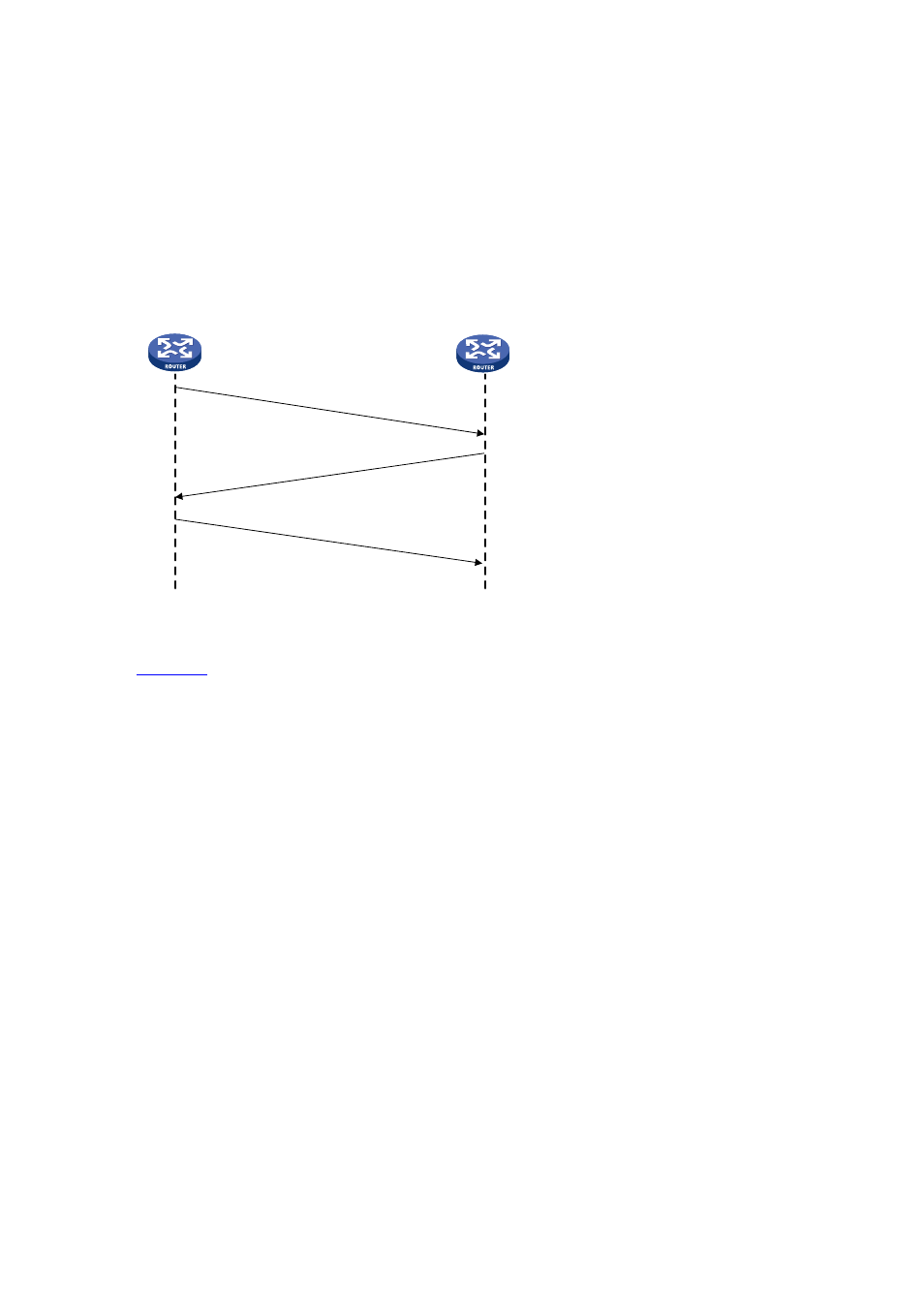How ppp works – H3C Technologies H3C WA2600 Series WLAN Access Points User Manual
Page 13

4-3
5) When the authenticatee receives the authentication request, it encrypts the packet using the MD5
algorithm, with the packet ID and the default CHAP password as the parameters, and then sends
the encrypted packet and its own username to the authenticator (Response).
6) The authenticator encrypts the original randomly-generated packet using the MD5 algorithm, with
the password of the authenticatee it maintains as the parameter, compares the encrypted packet
with the one received from the authenticatee, and returns an Acknowledge or Not Acknowledge
packet depending on the comparison result.
Figure 4-2 CHAP Authentication
Authenticator
Authenticatee
Challenge
Rsponse
Ack or Not Ack
How PPP Works
illustrates the PPP operating mechanism.
1) A PPP link is in the Establish phase when it is about to be established. In this phase, LCP
negotiation is performed, where LCP-related settings are determined, including operating mode
(SP or MP), the authentication mode, and the Maximum Transmission Unit (MTU). If the
negotiation is successful, the link enters the Opened state, indicating that the underlying layer link
has been established.
2) If the authentication (the remote authenticates the local or the local authenticates the remote) is
configured, the PPP link goes to the Authenticate phase, where CHAP or PAP authentication is
performed.
3) If the authenticate fails to pass the authentication, the link goes to the Terminate phase, where the
link is torn down and LCP goes down. If the authenticatee passes the authentication, the link goes
to the Network phase. In this phase, NCP negotiation is performed, the LCP state remains Opened,
and the state of IP Control Protocol (IPCP) transitions from Initial to Request.
4) NCP negotiation supports the negotiation of IPCP, through which the IP addresses of both sides
can be determined. NCP negotiation also determines and configures the network layer protocol to
be used. Note that a PPP link can carry a network layer protocol only after the NCP negotiation is
successful.
5) After the NCP negotiation is performed, the PPP link remains active until an LCP or NCP frame
closes it explicitly or some external events take place (for example, the intervention of a user).
